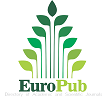The request of John Paul II, Benedict XVI and Francis for the care of the common home
Abstract
The Sacred Scripture presents us with the book of Genesis, the key to understand the relationship between man and nature. However, the original sin comes to alter this original relationship and establish a situation of domination. It will be Jesus Christ, in his voluntary surrender, who will come to restore all things and make them new. The Church, in part of its magisterium, has been in charge of promulgating this idea and already, in recent papacies, this need has been accentuated.
Thus, John Paul II points out that current materialism and consumerism is evidence of man's relationship of domination over creation, this opposes the spirit of care and consequently causes destruction.
Benedict XVI indicates that the appreciation and care of nature has a moral and ethical component, therefore it is limited to criteria of human excellence. He points out the need for technological progress to protect man and his natural environment in order to achieve a more efficient development. Also calls for ecological conversion.
Lastly, Francisco is committed to an integral ecology that includes man and society because the issue of pollution not only affects the planet, he thus speaks of the need to promote a new ecological culture that manifests itself in a change of lifestyle that include spirituality, as it will help to forge more humane and ecological models of life.
Downloads
References
Artigas, M. (2006). Ciencia, razón y fe. Ediciones universidad de Navarra, Eunsa.
Aznar, F. J. (2020). La necesidad de potenciar un modelo económico que busque la Salud Social en plena Emergencia Económica y Planetaria a raíz de la COVID-19. Espacios transnacionales, 8 (15), pp. 24-37.
Aznar, J. (2019). Bienestar y Salud Social. En J. Pérez (Ed.), Economía y Salud Social (pp. 287-308). Ediciones universidad de Navarra, Eunsa.
Ballesteros, J. (1995). Ecologismo personalista. Tecnos.
Benedicto XVI (2009). Caritas in veritate [Carta encíclica]. https://bit.ly/3PLDsSh
Benedicto XVI (2011). Fe y ciencia: un diálogo necesario. Sal Terrae.
Escudero, E. (2015). Síntesis de la Doctrina Social de la Iglesia. Siquem Ediciones, S.L.
Francisco (2015). Laudato Si´ [Carta encíclica]. https://bit.ly/2FpS87S
Francisco (2020). Fratelli tutti [Carta encíclica]. https://bit.ly/3WmD530
Garrido, J. (2005). Pensar desde la fe. Edicep.
Giner, S. (2010). Sociología. Península.
Biblia Latinoamericana (2004). (118ª edición). Editorial San Pablo.
Juan Pablo II (1991). Centesimus annus [Carta encíclica]. https://bit.ly/3WCVjNp
Lorda, J.L. (2009). Antropología teológica. Ediciones universidad de Navarra, Eunsa
Pérez Adán, J. (2019). Economía mariana. En J. Pérez (Ed.), Economía y Salud Social (pp. 49-70). Ediciones universidad de Navarra, Eunsa
Pérez Adán, J. (2022). La sociedad por venir. Ideas y Libros ediciones.
Ponce, M. (1997). El misterio del hombre. Herder.
Spaemann, R. (2010). El rumor inmortal. Rialp.
Taylor, Ch. (2006). Las fuentes del yo. Paidós.
Torralba, F. (2011). La lógica del don. Khaf.
Udías, A. (2010). Ciencia y religión. Sal Terrae
The authors retain copyright.
This work is under international license Creative Commons Attribution 4.0.
The articles published by the scientific journal "Notes on Bioethics" of the Universidad Catolica Santo Toribio de Mogrovejo, Chiclayo Peru, can be shared through the international public license Creative Commons Attribution CC BY 4.0
























 LIBRARY USAT
LIBRARY USAT